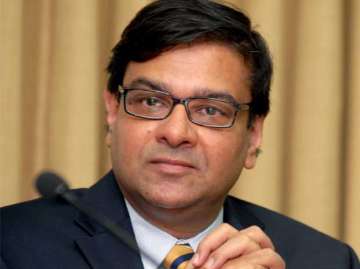Urjit Patel on Monday assumed charge as the 24th Governor of Reserve Bank of India, succeeding Raghuram Rajan whose three-year controversy-ridden tenure ended on Sunday.
Patel assumed charge effective September 4, 2016, after serving as deputy governor since January 2013, RBI said in a statement today.
He was reappointed as deputy governor on January 11, 2016, after the completion of his first three-year term in office.
Ensuring undisruptive redemption totalling USD 20-25 billion, getting used to the idea of Monetary Policy Committee and bank cleanup are the main challenges before the new Governor.
According to Rajiv Kumar, Senior Fellow at Centre for Policy Research, the first task before him is to get used to the idea of working with the Monetary Policy Committee (MPC).
"He has to devise a way of working with the committee and getting to the objective of meeting inflation target. Besides, containing food inflation is another challenge before him," Kumar said.
If food inflation raises its head again then what strategy he will employ to contain it, he asked.
Besides, he should work in a manner that RBI versus the Finance Ministry situation is avoided as all the components are working towards inflation control and employment generation and finally what approach he will adopt to clean balance sheet of the bank or strengthen banks.
Among his assignments as deputy governor, Patel chaired the Expert Committee to Revise and Strengthen the Monetary Policy Framework.
"Representing India, he actively participated in steering the signing into force of the inter-governmental treaty and the Inter-Central Bank Agreement (ICBA) among the BRICS nations, which led to the establishment of the Contingent Reserve Arrangement (CRA), a swap line framework among the central banks of these countries," RBI said.
(With PTI inputs)
Latest Business News

